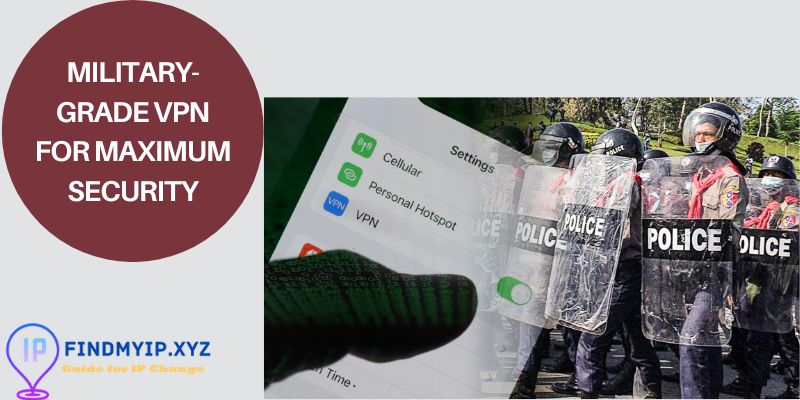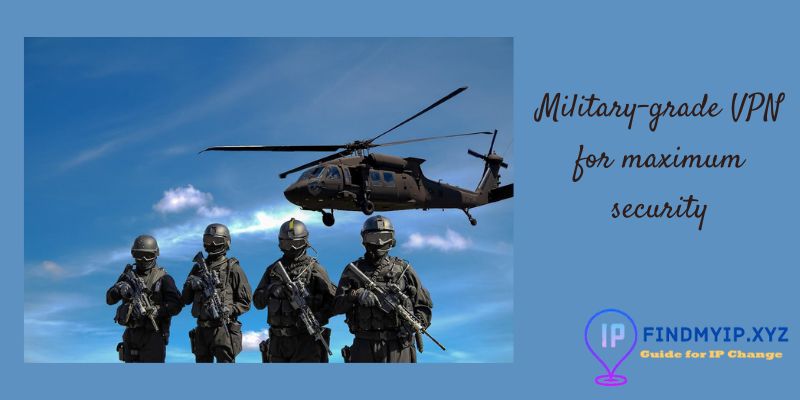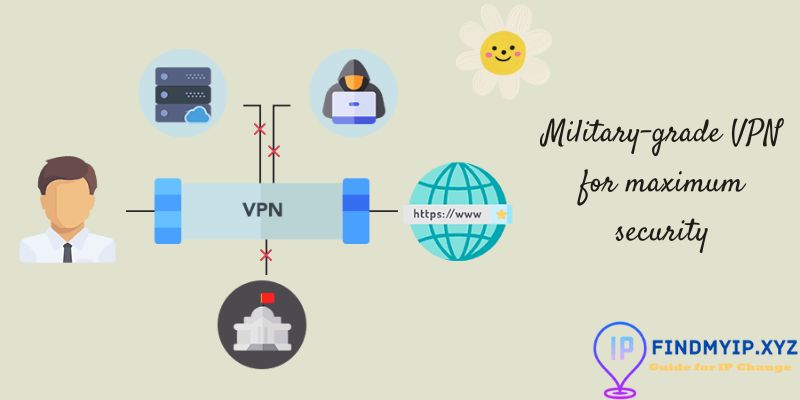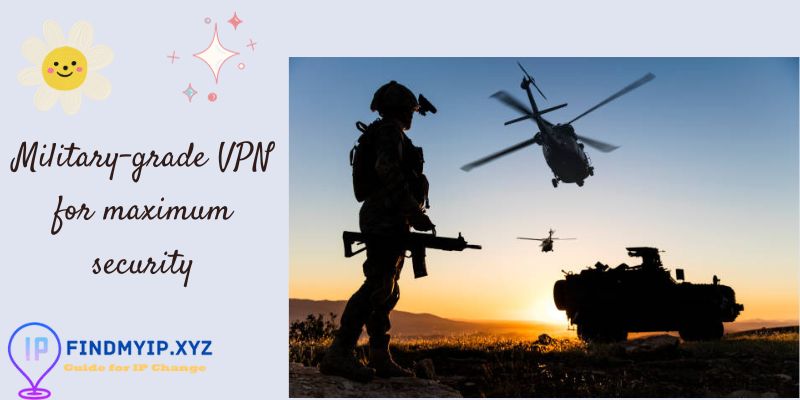Military-grade VPN for maximum security encryption requirements

You won’t need to conduct any further research because products that have obtained both NIAP and CSfC certifications will already have been certified to meet the encryption standards of Military-grade VPN for maximum security.
However, all Military-grade VPN for maximum security must adhere to the following VPN protocols and VPN encryption standards for informational purposes:
- The military-grade or classified federal government standard for encryption is known as CNSA. The most secure product on the market, Advanced Encryption Standard (AES) 256-bit end-to-end encryption, is one of the components. The NSA has officially authorized AES-256 as the first widely used and open cipher for top-secret information protection.
- Verification of NIST algorithms: NIST will conduct a verification of the encryption algorithms used in all Military-grade VPN for maximum security devices to make sure they are up to par.
Additional specifications for a Military-grade VPN for maximum security

The following are some factors to take into account when choosing a VPN for usage with military communications.
NIAP certification
Before being deployed in any government system, all Military-grade VPN for maximum security will need to receive NIAP certification.
Federal procurement regulations (CNSSP 11) require that commercial cybersecurity products have the NIAP certification before they can be used in U.S. National Security Systems (NSS). Its main function is to vouch for the security of commercially available products or technology that will be used to manage sensitive data.
Products will be included on the NIAP Product Compliant List (PCL) once NIAP certification has been obtained. In-depth information regarding the entire procedure that each VPN provider must follow to complete the NIAP certification process and acquire access to the NIAP PCL is available in this page.
Military grade communication systems cannot be used with just NIAP certification.
CSfC approval
The purpose of the Commercial Solutions for Classified (CSfC) program is to provide U.S. government agencies and their clients with access to low-cost, widely accessible commercial off-the-shelf (COTS) IT solutions that adhere to the strict security requirements set forth by the National Security Agency (NSA) for the transmission of classified data.
All goods on the CSfC Approved goods List must pass a stringent clearance process to ensure they are fully capable of securing up to top secret information.
All items that would be regarded as Military-grade VPN for maximum security solutions can be found by searching the CSfC components list under the VPN category.
Military-grade VPN for maximum security hardware vs. software
When it comes to the security of military communication systems, people frequently question us whether hardware or software VPNs are preferable.
The correct response in this situation is that you require both.
The use of a dual VPN tunnel, each of which adheres to the aforementioned VPN encryption standards, is necessary for CSfC design in order to allow a double encrypted connection for data transmission.
With two software VPNs, it is conceivable to attempt to create this dual tunnel design, but in reality, it is exceedingly challenging to set up and maintain such an architecture.
Instead, a dedicated outer secure VPN tunnel constructed with hardware VPN and an inner tunnel created with a software VPN service work best to build the twin tunnels. This totally resolves interoperability problems and even lessens the need for a retransmission device, which is frequently demanded in the implementation of Mobile Access Capability Packages.
Evaluating Military-grade VPN for maximum security

When looking for the best option for your needs, there are a few extra factors to take into account because not all Military-grade VPN for maximum security are created equal.
Network connectivity options
You must take into account the networks that your selected solution will use to send data.
The majority of military communication systems must be flexible enough to adjust to shifting conditions and may require a link by satellite, cellular, Wi-Fi, or other wired connections.
You will have more flexibility if your VPN technology obfuscates the endpoint devices that are communicating (along with their IP address) and operates across a variety of different connection mediums.
For instance, the Department of Defense (DoD) frequently uses executive communications kits, which are secure command and control network connections that are available when needed and are intended to keep senior leaders in touch by voice, video, email, and data from any location.
For phone conversations, built-in cellular and WiFi transport possibilities, a USB port for a laptop, mobile device, or other devices, and an integrated power supply, communications kits made for remote access are typically supported. While some kits may convey classified data, or both classified and unclassified data, other kits are developed and authorized to send sensitive, unclassified information.
One solution we created for the DoD gave agency representatives operating overseas secure, real-time communications access to both the personnel at their home base and their DoD counterparts deployed elsewhere in the world.
A secure mobile workstation that can be quickly set up and taken down is created by an executive communications kit made from CSfC Approved components. Additionally, it is simple to grow this affordable solution to any number of distributed teams or remote decision-makers.
Final thoughts
You can quickly browse the CSfC component list to locate VPN solutions that can satisfy your security demands and deployment criteria. There are several tools available to you that you can utilize to find VPN solutions that are up to military standards.
Finding a means to architect your final solution such that it will still be CSfC-approved is the challenging part. When connecting VPNs collectively and overcoming interoperability restrictions, difficulties can occur.

